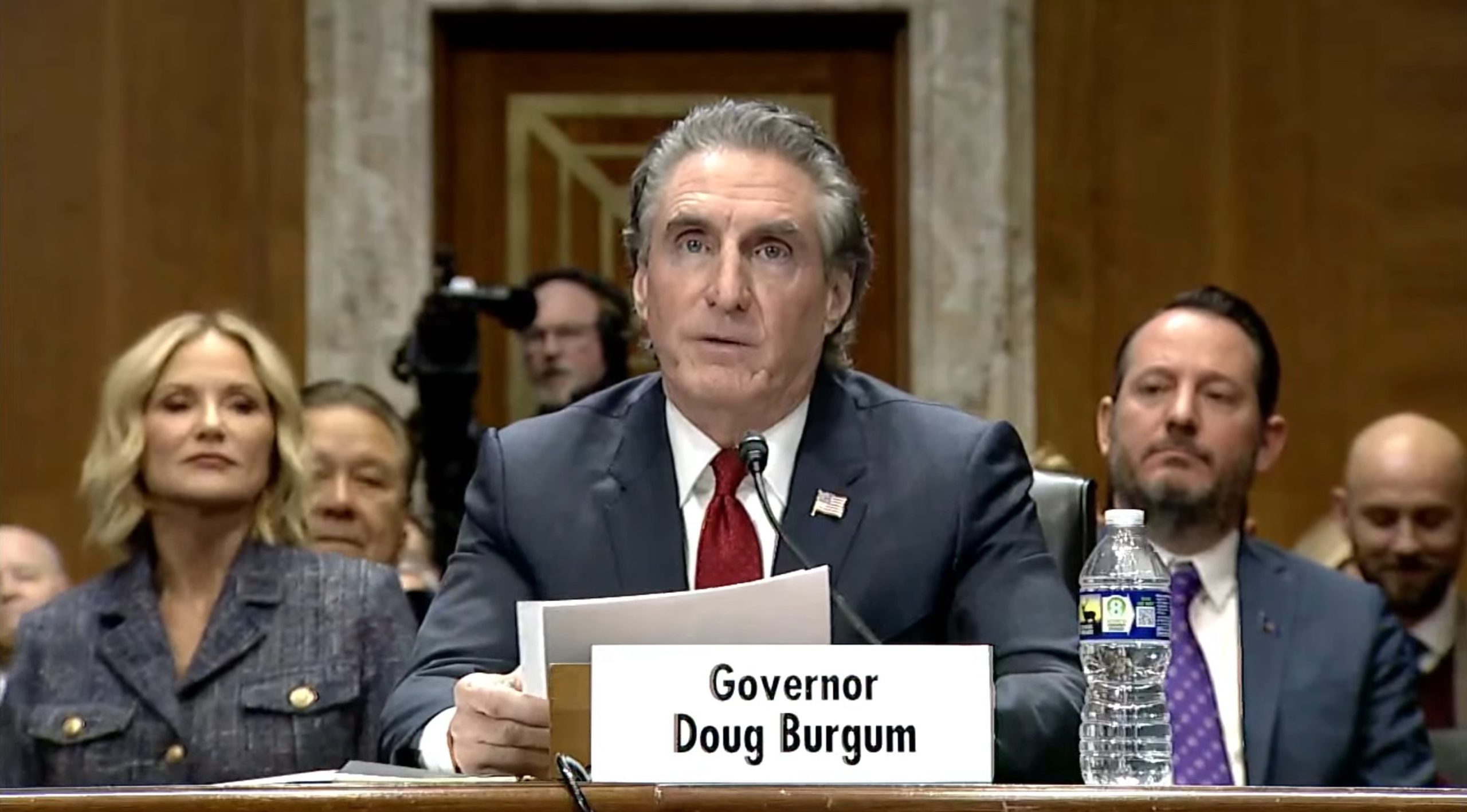Podcast: Play in new window | Download | Embed
As Gov. Kristi Noem (R-SD) is likely headed to Washington DC for a cabinet position, tribal leaders are calling for a reset in state-tribal relations.
That came during an annual address to the South Dakota legislature by tribal chairmen.
South Dakota Public Broadcasting’s Lee Strubinger has more.
Chairman Garrett Renville of the Sisseton Wahpeton Tribe says the state of South Dakota is in the midst of an historic moment.
In addition to changes for Gov. Noem, the U.S. Senate is led by Sen. John Thune (R-SD).
Chairman Renville says the state’s lone congressman, U.S. Rep. Dusty Johnson (R-SD), is working well in a divided U.S. House of Representatives.
“South Dakota is now literally at the center of the political universe. We have an opportunity, now, to bring about real change for our people and at all levels of government. But we must work together.”
Renville says state-tribal relations have hit a series of breakdowns in government-to-government engagement.
That came following comments by Noem alleging Mexican drug cartels were operating out of reservations.
“Today, let’s reset. Today, let’s rebuild. Today, let’s start to listen and actually hear.”
Renville points to areas where the state and tribes have worked together — including on a resolution in 2024 urging congress to address law enforcement shortages on tribal lands.
He’s urging the state to pass another resolution urging congress rescind the Dakota Removal Act.
Renville and other tribal leaders met with Noem and Lt. Gov. Larry Rhoden (R-SD) earlier this week.
Lt. Gov. Rhoden is next in line to become governor when Noem resigns her seat.
Standing Rock Chairwoman Janet Alkire also attended the meeting.
She says they talked with Noem about having a tribal law enforcement training center in the northern part of the country. That training takes place in New Mexico.
“If Gov. Noem makes it through the nomination process, she’ll be in charge of all the training for law enforcement. That’s one of the things we wanted to visit with her [on]. If we had some place up north, rather than sending all our folks down south. I think that’s why some folks don’t last. Locally, it’s much better.”
Alkire says she’s also looking forward to working with Rhoden, who is a West River rancher, when he becomes governor.

Courtesy C-SPAN
As Senate hearings continue this week for President-elect Donald Trump’s cabinet picks, tribal leaders are among those closely watching.
Navajo Nation President Buu Nygren issued a statement Wednesday, expressing his support for former Gov. Doug Burgum (R-ND).
Burgum has been nominated to lead the Department of the Interior.
A California tribe is celebrating after the Biden Administration green lit its petition to put land into trust for a major casino north of San Francisco.
As Jacob Resneck reports, that approval comes despite objections from neighboring tribes and many of the state’s political leaders.
The Koi Nation of Northern California applauded the U.S. Department of the Interior’s decision on Monday to put 68 acres into trust for the Shiloh Resort and Casino in northern Sonoma County.
The decision follows a federal judge rebuffing attempts by a neighboring tribe to block the development.
In a statement, Darin Beltran, chair of the Koi Nation Tribal Council, said the federal government’s approval fills the tribe’s hearts with promise and hope.
But neighboring tribes including the Federated Indians of Graton Rancheria which operates a casino complex 15 miles south of the site, has called the project a travesty as it’s outside the Koi Nation’s ancestral lands in a neighboring county.
Gov. Gavin Newsom (D-CA) also urged the Biden Administration to reject the casino project that includes more than 100 table games, 2,700 slots, and a 400-room hotel.
Once completed, the Koi have signed an agreement with the Chickasaw Nation of Oklahoma to manage the casino and resort.
Get National Native News delivered to your inbox daily. Sign up for our daily newsletter today.



